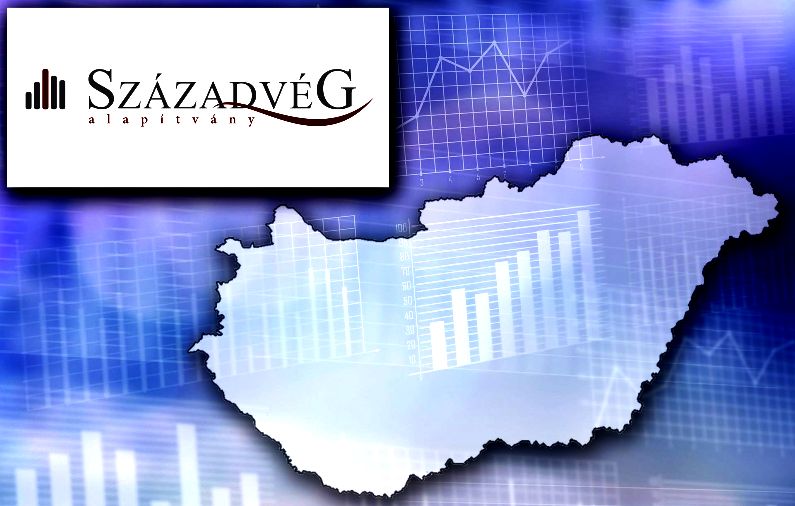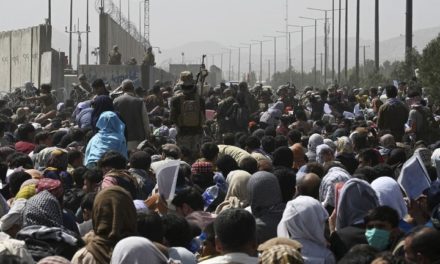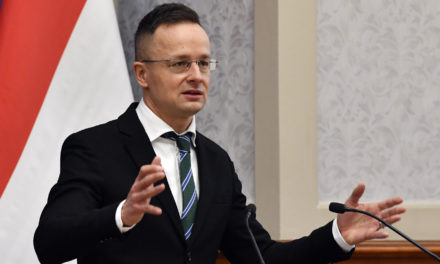89 percent of the respondents believe that the economic sanctions imposed on Russia harm the European Union and the European economy, and 71 percent oppose the extension of the said sanctions to energy carriers, such as natural gas and oil, according to the May from a public opinion poll. The survey mapped public attitudes related to the Russian-Ukrainian war.
Ukraine has become a collision zone of great powers
More than two months have passed since the outbreak of the Russian-Ukrainian war, during which it became obvious that the conflict needs to be interpreted in a broader context than the relationship between Ukraine and Russia. The confrontation is actually taking place between the Western powers (United States, NATO, European Union) and Russia, for which Ukraine has become a collision zone. As a direct consequence of this, the actions of the actors involved in the war - directly or indirectly - in recent weeks (imposing economic sanctions and sending arms shipments on the part of the "Western Bloc", as well as increasingly intensive military operations on the part of Russia) escalated the conflict much more than the peace would have been aimed at promoting.
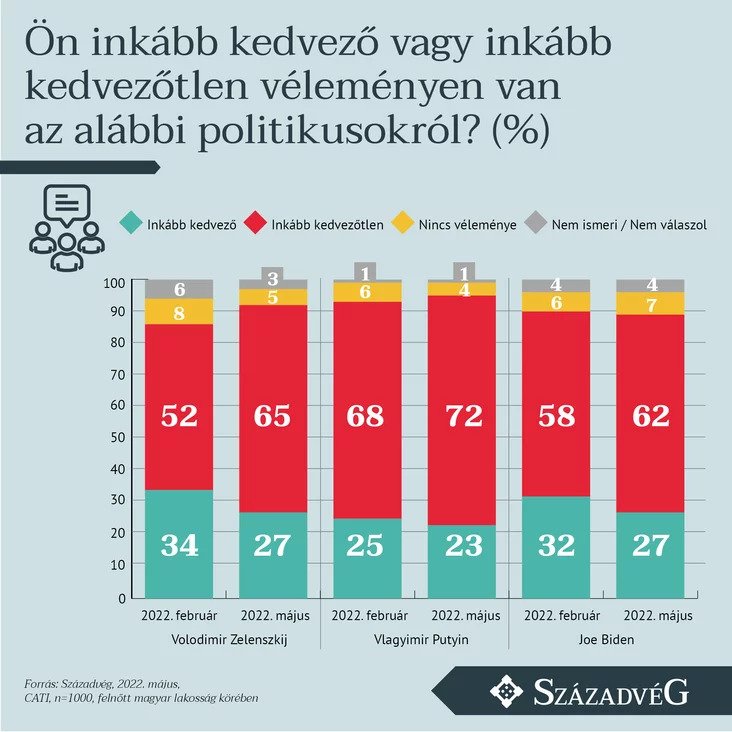
In the light of the research data, it can be stated that the Hungarians also recognized these processes, so the opinion of the leading politicians involved in the Russian-Ukrainian conflict is negative among the population, and has been steadily deteriorating since the outbreak of the war.
The survey shows that Vladimir Putin increased from 68 percent to 72 percent measured in February 2022, while the Joe Biden rose by 4 percentage points (from 58 to 62 percent). It is interesting that Volodymyr Zelenskiy has worsened to the greatest extent in the recent period: in February 2022, 52 percent of those surveyed had a negative opinion of the President of Ukraine, but in May it was already 65 percent.
The background of this phenomenon is assumed to be the fact that, despite our country's significant humanitarian aid, Zelenskyi and members of his government have repeatedly criticized Hungary , including because the Hungarian government buys crude oil and natural gas from Russia and does not send weapons to Ukraine. In connection with the latter, it is important to emphasize that the Hungarian public is clearly opposed to our country sending weapons to Ukraine, according to the research, 79 percent of the respondents oppose this proposal.
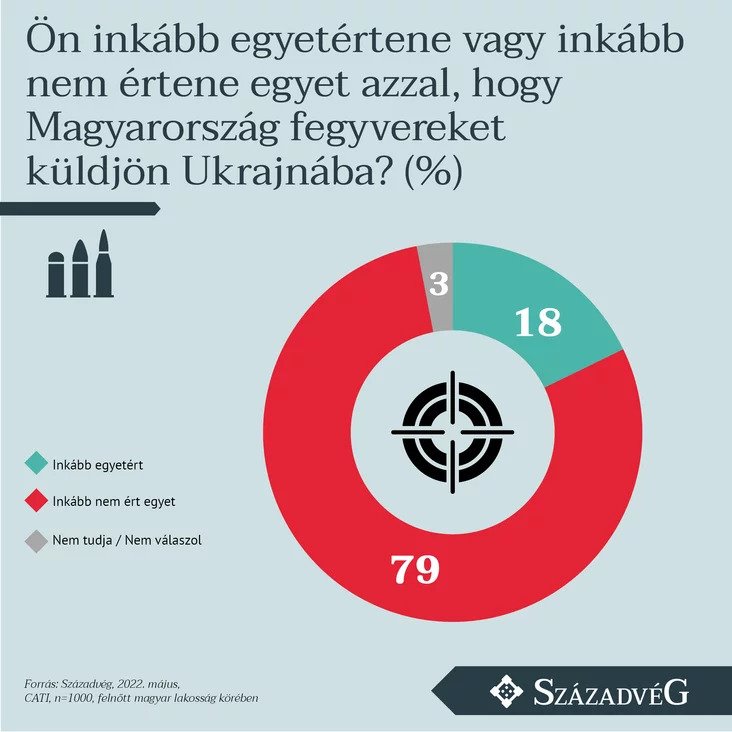
Russia and Ukraine are both responsible for the escalation of the armed conflict
Regarding the worsening of the Russian-Ukrainian conflict, it can be said that according to 28 percent of Hungarians, overall, Russia led by Vladimir Putin bears greater responsibility for the escalation of the confrontation, while 21 percent believe that Ukraine was led by Zelensky. Half of the respondents (50 percent) consider both Russia and Ukraine responsible for the situation.
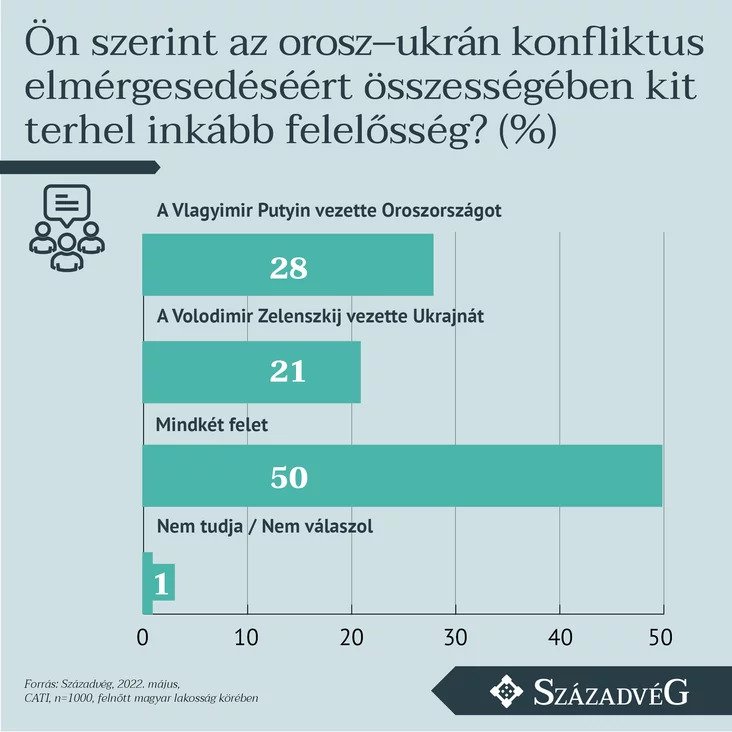
We must emphasize that in March 2022, Russia was still held responsible for the escalation of the conflict by 32 percent of the respondents, and Ukraine by only 13 percent, that is, by May, the group of those who believe that Ukraine led by Zelensky bears greater responsibility for the war situation increased by 8 percentage points. With regard to future prospects, it can be stated that two-thirds of Hungarians (66 percent) expect the Russian-Ukrainian war to drag on, while 30 percent of them see that the conflict will end in the near future.

The sanctions imposed on Russia are also hampering the European economy
Since the outbreak of the Russian-Ukrainian armed conflict, one of the most decisive topics in European public discourse has been the issue of sanctions against Russia. The European Union is currently preparing its sixth package of sanctions, which would affect Russian oil imports. The survey highlights that 40 percent of those surveyed consider the economic sanctions imposed against Russia to be sufficient, while 31 percent find the measures introduced to date to be excessive.
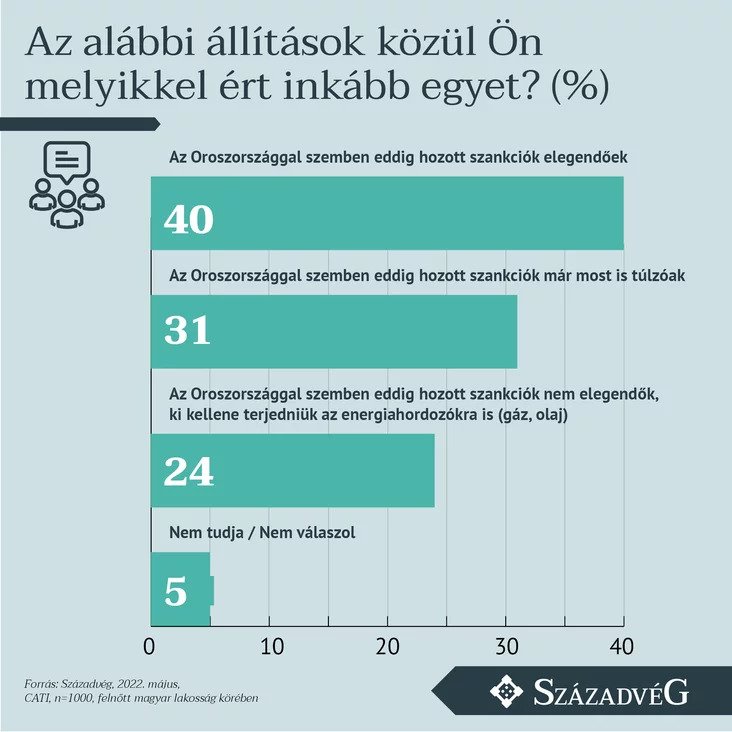
The proportion of those who reduce the sanctions imposed so far against Russia and would support the extension of restrictions to energy carriers (natural gas, crude oil) can be increased to 24 percent. In this regard, it is important to emphasize that 89 percent of Hungarians believe that the sanctions imposed on Russia harm the European Union and the European economy, while 10 percent of them believe that the punitive measures in question do not significantly affect the economic situation of the European Union.
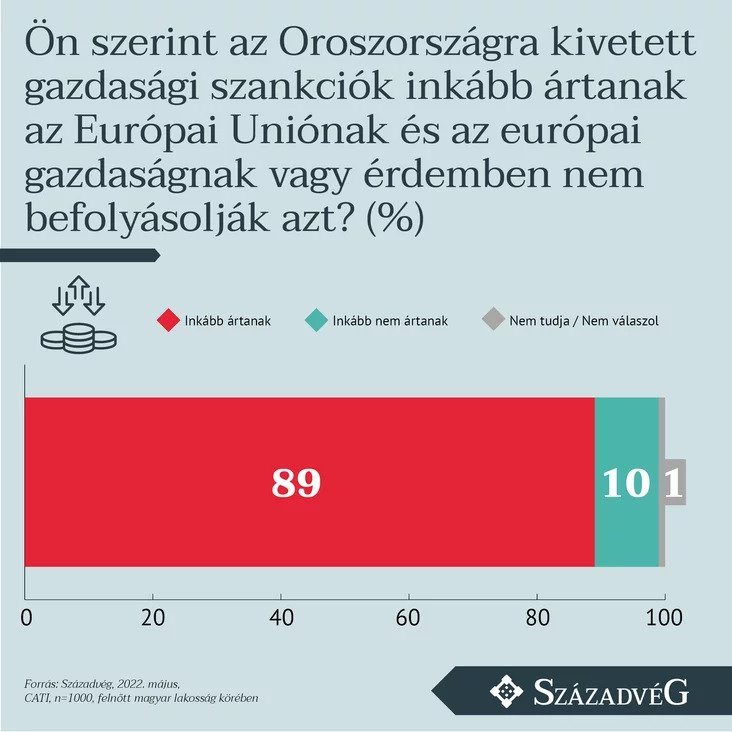
Source: End of the century

